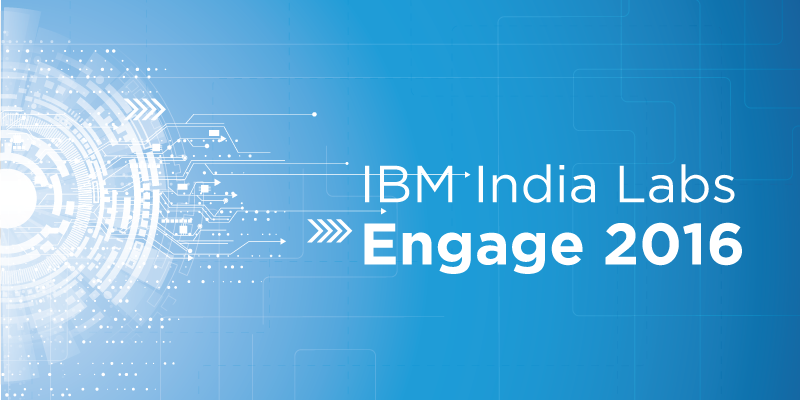Simply being innovative is not enough. It’s time to infuse intelligence into business solutions
This article is sponsored by IBM
Data meets insights
Today, searching for a hotel is as easy as a click of your mouse or a swipe across your phone. But when it comes to finding the right hotel that suits your budget, comfort, and needs, you need to look deeper.
That’s where the WayBlazer can help. In addition to helping you find the right hotel, it also gives you insights and recommendations based on where you’re headed – from reminding you to carry a jacket to tips on local cuisine.
Touted as the world’s first cognitive recommendation engine, it focuses on delivering artificial intelligence to the travel industry. WayBlazer’s cognitive technology dynamically imports reviews, insights, images and local area knowledge in the context of each individual and their trip profile and provides personalised content with hotel recommendations. This boosts online engagement, improves traveller conversion rates, creates new revenue streams for hotels and, more importantly, helps customers make travel decisions that are tune with their needs in a faster and simpler manner.

Powering WayBlazer is proprietary cognitive computing technology, along with IBM Watson. A technology platform, IBM Watson uses natural language processing and machine learning to deliver insights from vast swathes of unstructured data. While WayBlazer is just an example of how IBM Watson is aiding the travel sector, it is being used across industries by organisations of all sizes to quickly extract key information and reveal insights, patterns and relationships across data.
Watson’s versatility is that it can deliver advanced cyber threat defence, answer customers’ pressing questions with relative ease or enable doctors to provide personalised wellness guidance to patients. In fact, one of Watson’s biggest application areas is healthcare. In short, IBM Watson is enabling people and organisations to boost revenue and efficiency, address business challenges, and even save lives.
More than 2.5 quintillion bytes of new data is being generated every single day. This includes news articles, research reports, social media posts, enterprise system data, and so on. While, most of this data is unstructured, it holds many possibilities and business potential if mined right.
The IBM Watson Knowledge Studio, a cloud-based application targeted at small and medium enterprises and startups, enables developers and domain experts to identify mentions and relations in unstructured text. Additionally, the product is available on IBM Bluemix, an open source environment that helps businesses quickly and easily create, deploy, and manage applications on the cloud. All this combined with the Watson Developer Cloud, it becomes easy for startups to build cognitive computing features in apps, propel business and stay relevant in changing times.
From The Internet of Things to the Internet that thinks
What if sensors in doors and entrance areas can tell a real estate manager how many people are in a building at any given point of time. What if sensors on plate dispensers can inform kitchen staff about how many people are still likely to eat – helping them prepare the right amount of food and avoid wastage?
To answer questions like these, ISS is leveraging IoT. One of the world’s largest private employers, ISS employs more than half a million staff managing everything from concierge services to cleaning, catering to technical maintenance. By tapping IBM’s Watson IoT platform, ISS will integrate and analyse data from millions of devices and sensors embedded into buildings, including doors, windows, chairs, meeting rooms, dispensers and air conditioning systems and transform the services it provides to building owners. Leveraging the IoT capabilities, it hopes to make buildings more personalized, intuitive and user-friendly, delve deeper into how people use buildings and create new opportunities for innovation.
In another use-case scenario where IoT is making a difference, is animal care. A connected wearable device, worn around a dog’s tail, TailTalk uses Watson IoT to decode the dog’s body language and helps dog owners reciprocate accordingly.
These two examples are a testimony to how consumers, businesses, and even governments are embracing IoT innovations to manage not just high-end use cases like manufacturing but even day-to-day routine affairs. According to a 2015 report ‘Unlocking the Potential of Internet of Things’ by McKinsey, analysts project that by 2025, data from connected devices will yield insights driving potential economic value of as much as $11 trillion. This is one of the key reasons why IoT is driving nearly 71% of COOs to re-evaluate their operating models.
As virtually everything is getting IoT- connected—homes to cars to crops —businesses are harnessing the resulting data to improve virtually every aspect of what they do. And, IBM Watson IoT is a key solution that is enabling businesses to boost operational performance, enhance customer experience, find new ways to monetise value through asset-based online marketplaces, garner new revenue from existing products and services and even power green initiatives. The Watson IoT portfolio enables organisations to help to draw actionable insights from billions of connected devices, sensors and systems. With the IoT Platform available on IBM Bluemix, it becomes easy for businesses to set up and manage IoT devices and data to create applications, visualisation dashboards and mobile IoT apps.
Changing the way you do business
Today, transactional applications have become the norm and are bringing a fundamental shift in business interactions. From enabling organisations to settle securities in minutes instead of days, to helping supply chain organisations better manage the flow of goods and related payments, Blockchain technology is building accountability and transparency while streamlining business processes.
While Blockchains are being extensively used in the banking and insurance sector, we are beginning to see the technology being used to create smarter and more efficient systems for supply chains, IoT networks, gaming, multi-media rights management, car rentals and even in Government proof of identity (or license) creation. IBM’s Blockchain solution is one of the most robust and comprehensive ones being used across a broad range of business applications – from business contract management to asset ownership and transfer between businesses.
There are a number of reasons why IBM Blockchain is one of the top choices for businesses. For instance take B2B contracts. Business contracts can be codified to allow two or more parties to automate contractual agreements in a trusted way. Although information on blockchain is naturally ‘public’, B2B contracts may require privacy control to protect sensitive business information from being disclosed to outside parties that also have access to the ledger. That’s where the IBM Blockchain becomes a differentiator. The solution provides a shared record of the contract status which is updated as the purchase and delivery progresses. Also, it is available to all parties to the agreement, their banks, and partners. This leads to increased efficiency and transparency across the supply chain and the near real-time update of all contracts makes a positive difference to risk management.
While this is just an example of how IBM Blockchain can add value to businesses, those who have deployed it say that apart from bringing in efficiency and reducing the risk of collusion and tampering, it eliminates overhead and cost intermediaries. This becomes advantageous, especially in the early years of the startup journey. To enable organisations to manage, develop, and conveniently test an IBM Blockchain network, like many other IBM solutions, the company has made the technology available on the cloud through the IBM Bluemix.
As startups, it becomes imperative for you to know how you can leverage these advances in technology and fast-track your business. Learn and experience the potential of tomorrow’s technology today at the IBM India Labs Engage 2016.
Applications close on August 23, 2016. The shortlisted startups will be notified by August 25, 2016.











